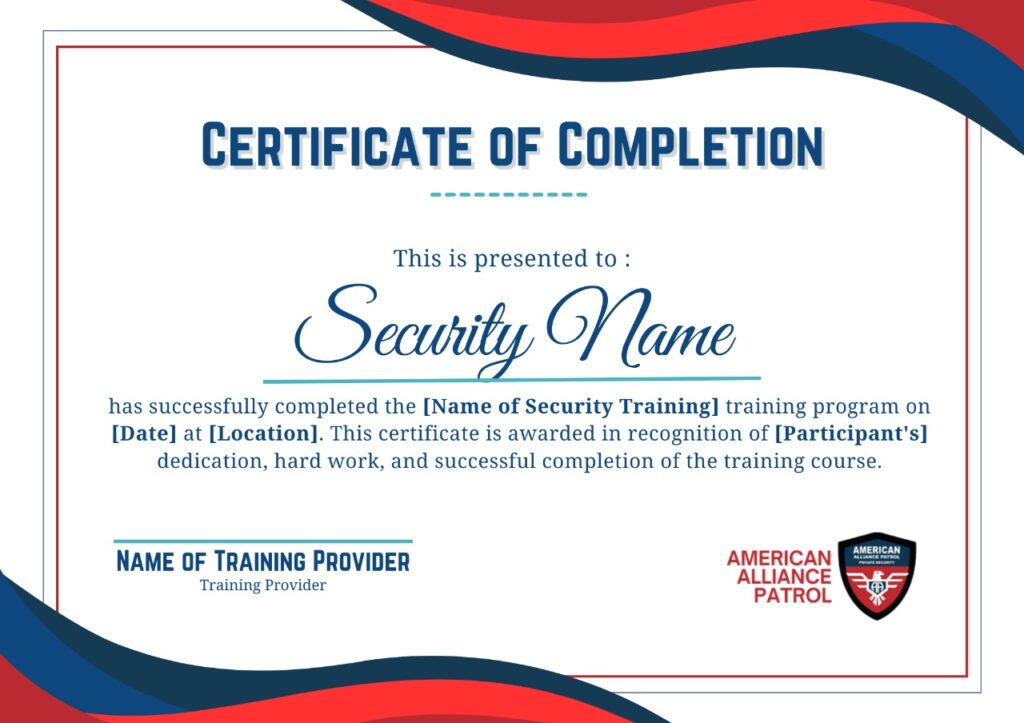What You Need to Know
Security Guard Training:
Essential Security Guard Training
Introduction
Being a security guard is an important job. It involves protecting people, property, and information. However, did you know that becoming a security guard involves much more than simply wearing a uniform and overseeing a location? It requires a unique set of skills, including keen observation, effective communication, and the ability to respond quickly to unexpected situations. It also requires training to do the job right, which ensures that security guards know how to handle different situations safely and effectively.

Types of Security Guard Training
Security guard training is not the same everywhere, and it can range from basic to advanced. Let's look at the main types of training and what they cover.
1. Basic Training
Basic training is the first step for anyone who wants to become a security guard. It includes:
- Industry Overview: Learning about the role of security guards and what they are expected to do.
- Security Protocols and Procedures: This includes understanding how to patrol, use surveillance equipment, and follow safety guidelines.
2. Advanced Training
There are instances where basic skills are simply not enough. Advanced training helps security guards prepare for these challenges:
- Specialized Skills: CPR and first aid are useful if someone needs medical help.
- Specific Training: For example, working in a hospital requires knowledge different from working in a retail store.
3. Continuing Education
Even after becoming a security guard, learning doesn’t stop. Continuing education ensures guards stay updated:
- Refresher Courses: These help security guards keep their skills sharp.
- New Technologies and Threats: As new security tools and challenges arise, guards need to learn how to deal with them.
Key Topics Covered in Security Guard Training
Security Procedures and Protocols
Security guards must know how to keep a location secure. This includes:
- Check-in and check-out processes
- Monitoring security cameras and alarm systems
Emergency Response and Crisis Management
Emergencies can happen anytime. Training teaches guards how to:
- Stay calm under pressure
- Emergency services and assist until help arrives
Communication and Interpersonal Skills
Good communication is a must. Guards learn to:
- Talk clearly and politely with others
- Share important information with team members
Observation and Surveillance Techniques
Security guards need to be alert and attentive. Training helps them:
- Spot suspicious activity
- Use tools like CCTV cameras effectively
Conflict Resolution and De-escalation
Sometimes, situations can become tense. Guards are trained to:
- Resolve conflicts without using force
- Calm people down and prevent problems from getting worse
Legal Authorities and Limitations
Understanding the law is essential. Training covers:
- What security guards can and cannot do
- Legal consequences for actions taken while on the job
Fire Safety and Emergency Procedures
Fire safety is vital for any location. Guards learn:
- How to use fire extinguishers
- Evacuation routes and plans
First Aid and Medical Response
Basic medical knowledge can save lives. Training includes:
- Performing CPR
- Apply pressure to the wound to stop the bleeding until professional help arrives
Customer Service and Relations
Security guards often interact with people. Good training ensures they:
- Provide a positive experience for visitors
- Assist customers or employees when needed
Industry-Specific Training
Certain places need special skills, like:
- Healthcare facilities: Understanding patient privacy (HIPAA)
- Retail stores: Handling potential shoplifters
Benefits of Security Guard Training
Training brings many advantages for security guards and the places they work. Here are some key benefits:
- Enhanced Job Performance
Well-trained guards know their duties and can perform them efficiently.
- Increased Confidence and Authority
Training helps guards feel confident in their role, allowing them to act with authority.
- Improved Safety and Security
With proper training, guards can keep people and places safe.
- Compliance with Regulations
Most places have rules about security. Training helps guards meet these standards.
- Career Advancement Opportunities
Advanced training can lead to promotions and more job opportunities.

Online Courses and Webinars
For those who prefer flexibility, online courses are available. They offer video lessons and quizzes that can be done at home.
- On-the-Job Training
This is where new guards learn by shadowing experienced ones. It helps them understand real-life scenarios.
- Simulation-Based Training
Simulations use mock scenarios to practice responses. This could include:
- Dealing with an active threat
- Responding to a fire or medical emergency
Hands-on Training and Drills
Practical training, like learning how to handle fire extinguishers or practice CPR, is crucial for skill-building.

Certifications and Licenses
Certain certifications are needed to work as a security guard. Here are some of the most common ones:
- Security Guard Certification: Most states require this to ensure guards meet a basic standard of training.
- Private Patrol Operator (PPO) License: This is needed for guards who manage or operate their own security business.
- Guard Card Certification: Many states issue a guard card after completing basic training and a background check.
- Industry-Specific Certifications: Some certifications apply only to certain industries, like:
- HIPAA training for healthcare security
- OSHA certifications for workplace safety
Conclusion
Security guard training is vital for anyone who wants to do the job well. It covers everything from learning basic procedures to mastering advanced skills. Continuing education keeps guards prepared for new challenges. Moreover, proper training not only benefits the security guards but also makes the places they protect safer for everyone.
